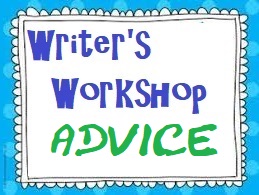Ever read Raymond Chandler’s The Big Sleep? Classic hard-boiled detective genre from the 1930s. A good read, but not necessarily for everyone. However, that’s not the point. If you were given a choice, would you read a book called The Big Sleep, or a book called The Sleep? Let’s face it – you would read The Big Sleep for one reason alone – it’s bigger. The promise is in the label. This is something we need to consider when we write.
When we create our worlds and all the elements, it’s obviously important to make it feel detailed, practical, graspable – it needs to be a real world. However, with the art of writing, the world needs to draw the reader toward the little details that move the plot. In a movie, this might be done with a trick of lighting to showcase a particular item. In video games, special items stand out or shimmer against the scenery. In writing, it is not as easy, so we do it with little words. Little words that carry big weight.
Like The Big Sleep, the draw is created by "Big." It creates questions in the mind: What makes that sleep so big? Can sleep be big or small? Is it a reference to something else? (it is) Indeed, the unusual description sets off the entire meaning. It helps that it’s in the title, but that’s not the point.Let’s take a look at a random character, not from any particular book. She is a brunette, wearing sunglasses, a big blue sun hat, a blouse to match, and jeans, sitting outside Starbucks enjoying her morning coffee. This description is a basic write-up, but it packages up a couple of things within this sentence.
First, all of this simplicity is disrupted by a big blue sun hat. We don’t know details about whether the jeans are acid-wash or dark denim, the sunglasses are mirrored, or really anything about the hair style, but there’s that hat. Also, the blouse goes with it, so the writer has in turn tied importance to this. I would wager that in your personal image of this scene, the sun is now out, and you have a very vivid image of this woman. We created this image with a few strategically placed descriptors, not worrying about the color of the jeans, the kind of coffee, or whether she’s even wearing shoes.
Using this kind of description can be controversial. It is considered minimalist, and often is alluded to as white-room writing, where a scene feels blank without descriptors. However, there is a difference between minimal and precision. Minimal is barely any description. Precision, as mentioned earlier, is focusing on the one element that drives the story. If our coffee-drinking lady above suddenly loses her hat in the breeze, and it rolls along the street, between the morning commuters, the reader can better feel the situation and the author can play on that connection. The big sunhat can fly past the charcoal- and grey-suited commuters, who only see a flash of blue rushing along the sidewalk, heading for a stagnant puddle in the alley. The reader now cares about the hat and its perilous situation because they identify it in their mind, they connect with it as a part of the story, and care more about it than the woman, her coffee, or her ambiguous shoe situation.
The beauty of this writing style is that its distinct focus guides along the reader without them knowing it. They follow the story from the leads they've been given, and they tend to not worry about the trappings around them when they are not necessary. They just want to know if the big blue hat went into the puddle, and the resolution of the hat's fate is a satisfying conclusion to the story, even if description is lacking.
(Don't worry - the hat is fine.)
The next post will add another element to the art of description - mood. Our big blue sun hat is not safe yet...







